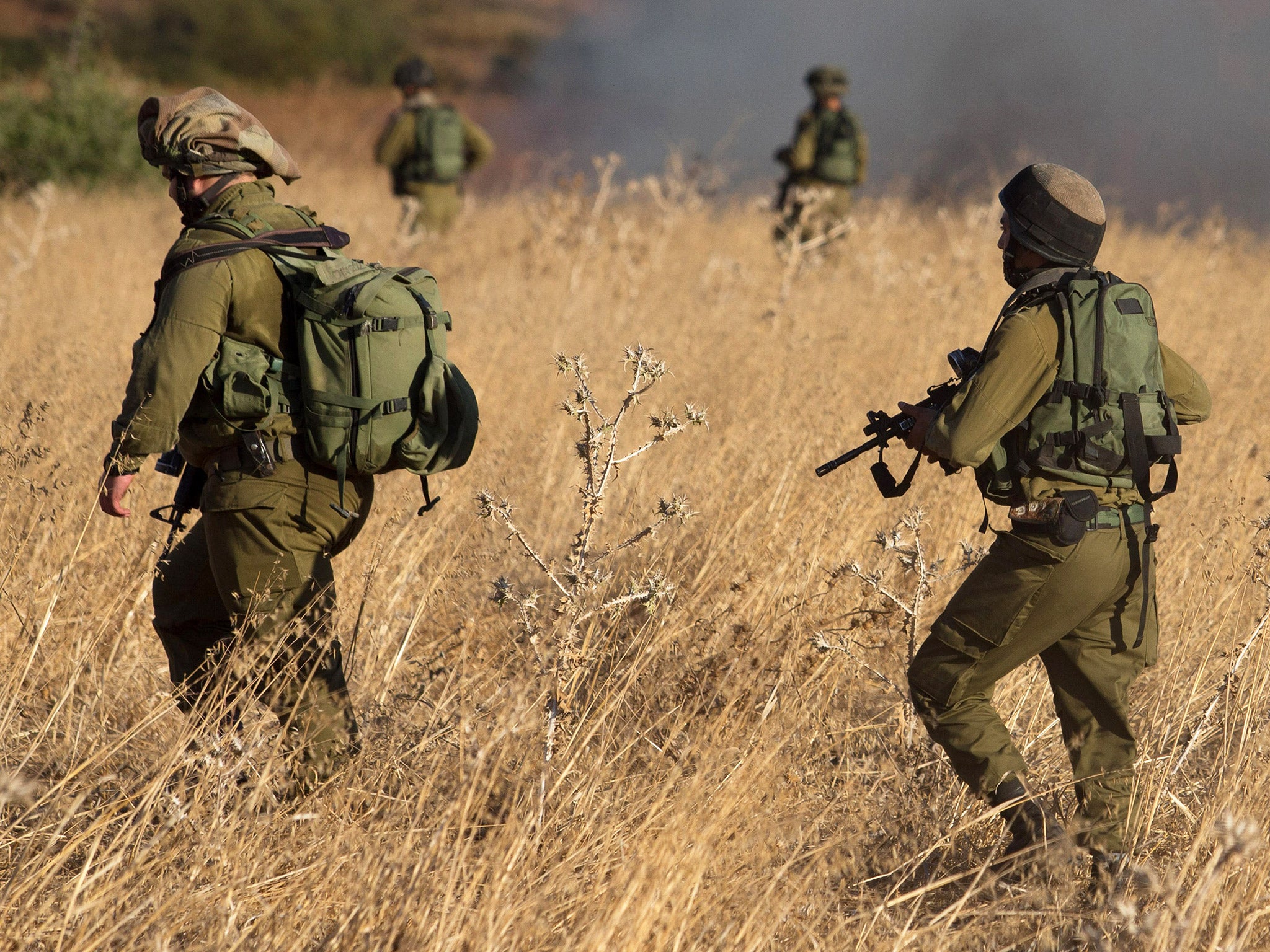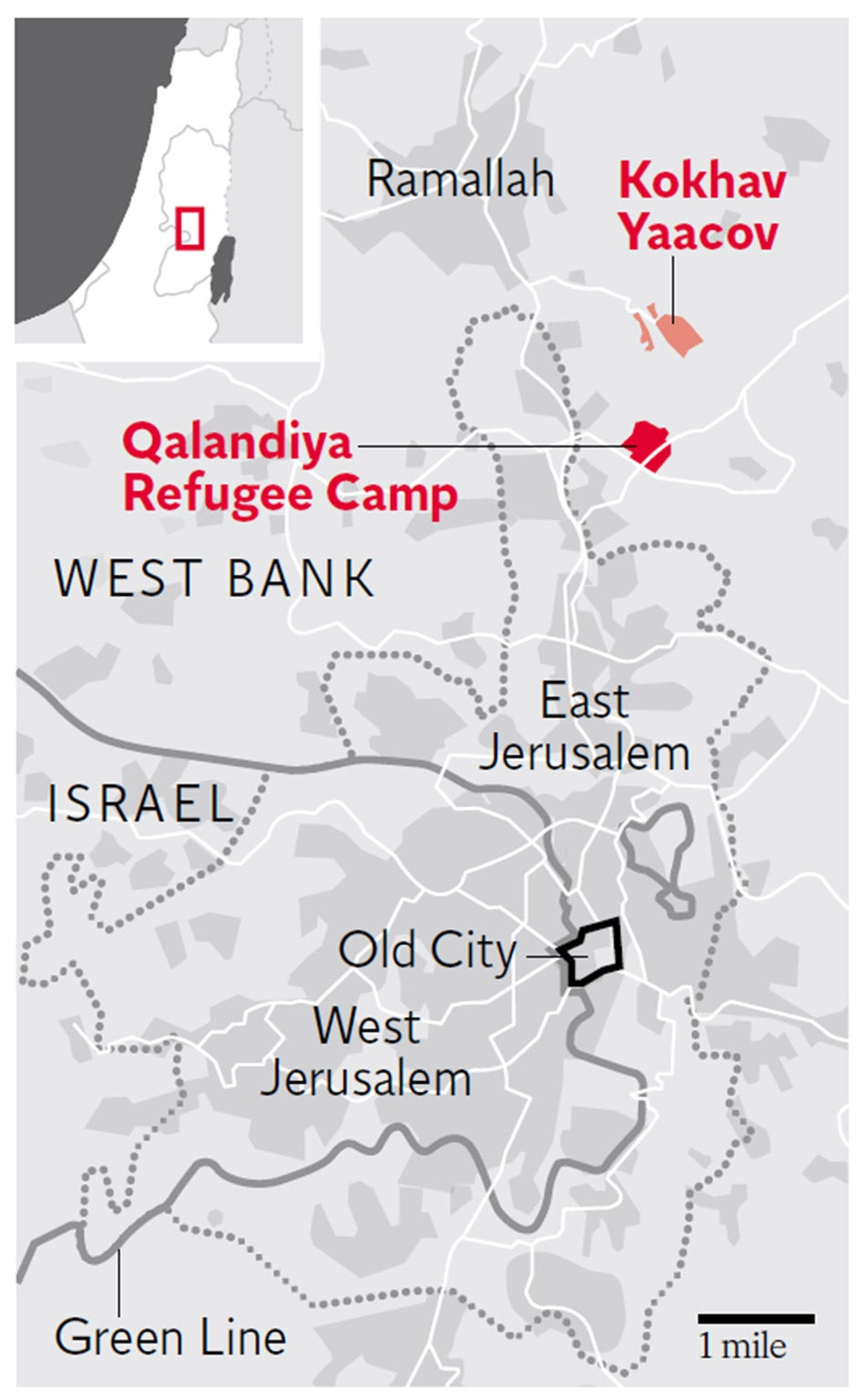Israel forced to rescue two soldiers after faulty app leads them into volatile West Bank refugee camp
The Qalandiya camp has been a major flashpoint during the five-month wave of violence in Jerusalem

Your support helps us to tell the story
From reproductive rights to climate change to Big Tech, The Independent is on the ground when the story is developing. Whether it's investigating the financials of Elon Musk's pro-Trump PAC or producing our latest documentary, 'The A Word', which shines a light on the American women fighting for reproductive rights, we know how important it is to parse out the facts from the messaging.
At such a critical moment in US history, we need reporters on the ground. Your donation allows us to keep sending journalists to speak to both sides of the story.
The Independent is trusted by Americans across the entire political spectrum. And unlike many other quality news outlets, we choose not to lock Americans out of our reporting and analysis with paywalls. We believe quality journalism should be available to everyone, paid for by those who can afford it.
Your support makes all the difference.Two Israeli soldiers strayed into a volatile West Bank refugee camp because of faulty use of their satellite navigation app, forcing officials to launch a massive military operation to rescue them.
At least one Palestinian was killed and 17 others wounded during clashes in the Qalandiya refugee camp, north of Jerusalem, after the rescue, Palestinian media reports said. Ten members of the Israeli security forces were also wounded.
Israeli army spokesman Lieutenant Colonel Peter Lerner said that the two soldiers, from a non-combat unit, were on their way back to base Monday night from an “administrative mission” at the time of the incident. They were using an Israeli satellite navigation app, but had switched off a function that warns against entry to Palestinian areas considered dangerous for Israelis, he said.
They therefore drove into the camp, a densely packed cluster of drab grey homes in narrow alleys that is home to 13,000 people. It has been a major flashpoint during the five-month wave of violence in Jerusalem and the West Bank.
The soldiers soon found themselves faced with a crowd throwing rocks and tried to turn their vehicle around but found their way blocked, Mr Lerner said. Members of the crowd through Molitov cocktails, causing the vehicle to catch fire, he said. The soldiers fled the vehicle, going in different directions.

One soldier took refuge in a yard and called his commander. He was extricated after around 20 minutes, Mr Lerner said. The second soldier had left his phone in the vehicle and was unable to make contact with troops.
When there was no contact, the army suspected he had been abducted and invoked a rare and controversial procedure known as the Hannibal Directive. Used on one occasion with devastating results on Palestinians during the 2014 Gaza war, the procedure allows for the use of massive firepower even at the risk of killing the abducted soldier. “It raises situational awareness of forces so that everyone understands there has been an abduction and it diverts the military capabilities and resources to deal with it,” Mr Lerner said. As part of the directive helicopters and drones were brought in and, according to Israeli media reports, elite rescue forces were moved to the camp.
In the meantime, the soldier was making his way by foot across the length of the camp, Lt Col Lerner said. He used his gun to fire warning shots, he added. About a half hour after the procedure was declared, the soldier arrived in the Kochav Yaacov settlement. Troops found him and the Hannibal Directive was cancelled.
Palestinian media reports say the army then brought in a bulldozer to extricate the soldiers burnt vehicle. Armed Palestinians exchanged fire with troops, reports said. Iyad Sajdiya, a university student whom the army said was armed, was felled by a bullet to the head.
Thousands turned out for mosque prayers before his burial amid calls for revenge, the Maan news agency reported. “He is not the first martyr and he won’t be the last,” his father Omar Sajdiya said. Eleven residents of Qalandiya camp have died since the violence started in October, some of them during Israeli army raids to demolish family homes of Palestinian assailants.
For Israelis, the incident brought back memories of the early days of the second intifada uprising in October 2000, when two reserve soldiers mistakenly entered Ramallah and were killed and mutilated by rioters.
Join our commenting forum
Join thought-provoking conversations, follow other Independent readers and see their replies
0Comments